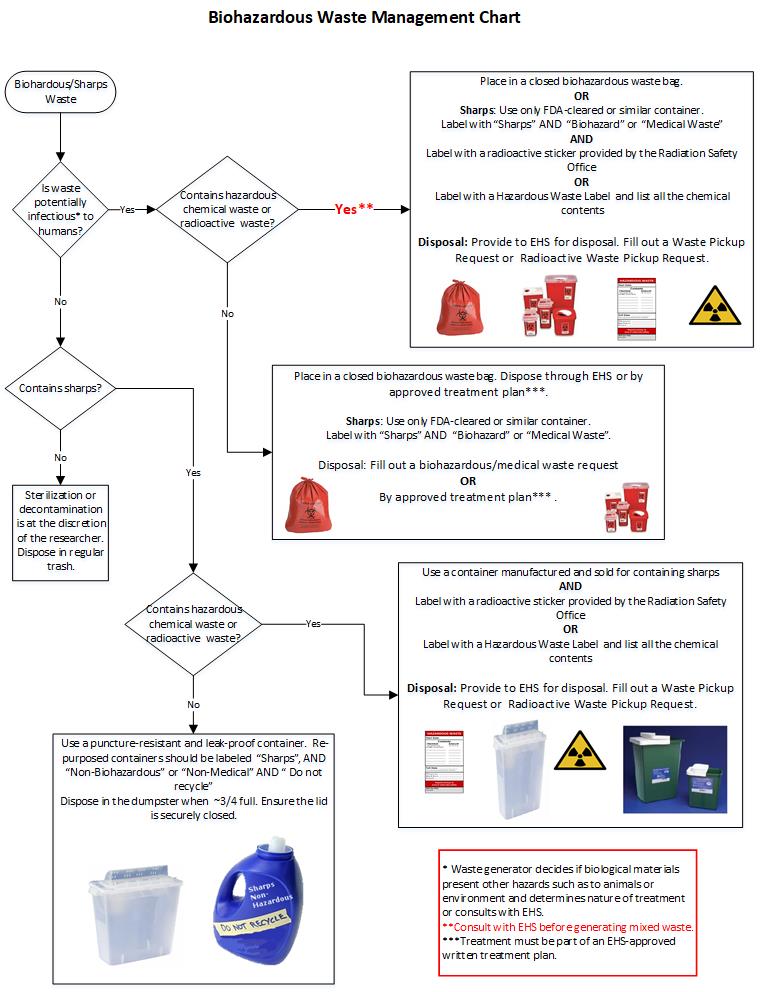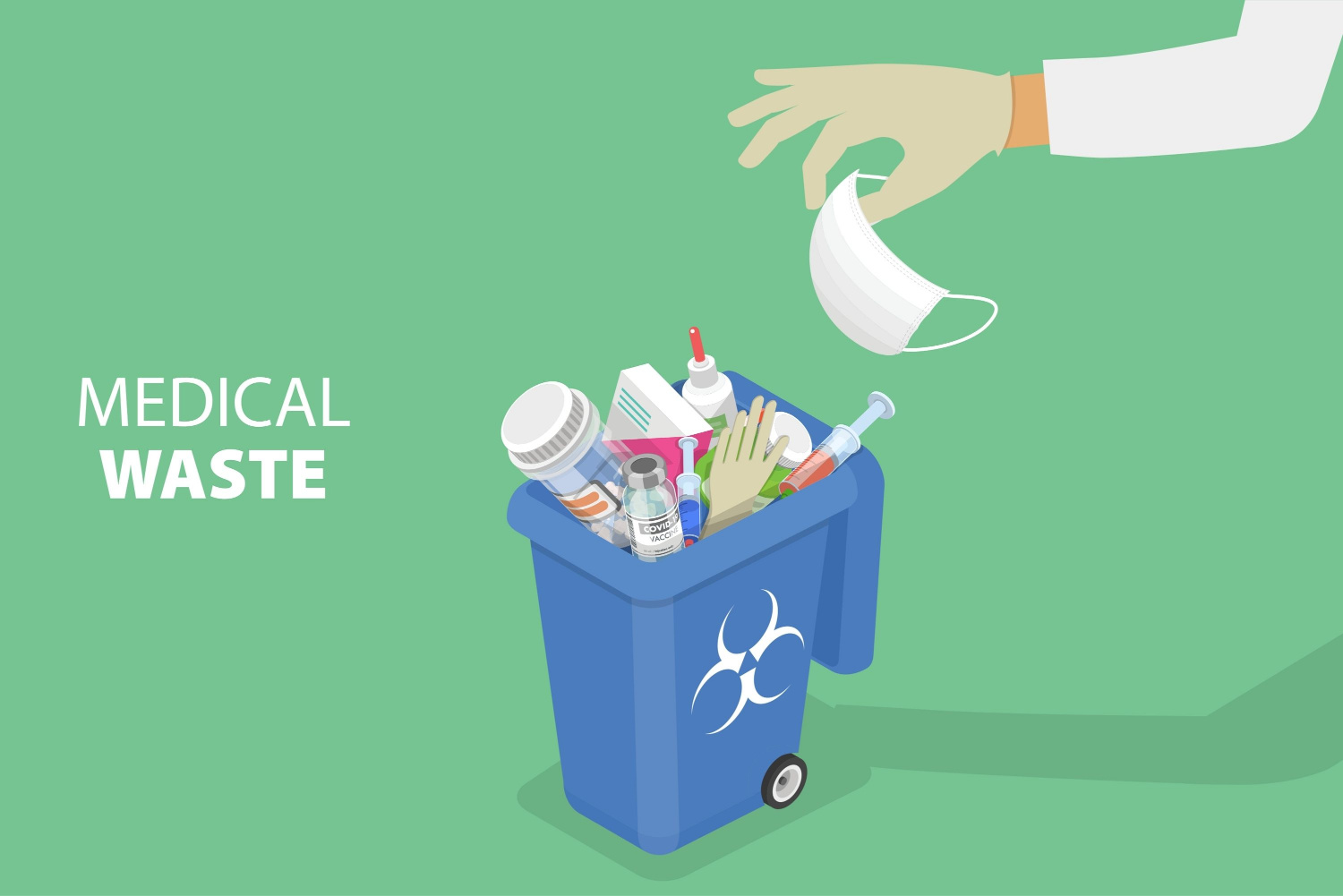Appropriate Disposal Methods for Medical Waste
Correct disposal techniques for medical waste are of utmost importance in guaranteeing the safety and security of both medical care employees and the basic public. The suitable handling and disposal of clinical waste is vital to stop the spread of transmittable illness and the contamination of the atmosphere. This includes the risk-free disposal of sharps, contagious waste, and pharmaceutical waste. Complying with strict standards established by governing bodies is vital to maintain compliance with lawful policies and secure public wellness. This intro will certainly explore the importance of correct clinical garbage disposal, offer guidelines for dealing with different kinds of waste, and emphasize the requirement for health care facilities to adopt ideal methods. By adhering to these standards, doctor can add to a more secure and healthier setting for all.
Value of Correct Clinical Garbage Disposal
Correct medical waste disposal is of utmost relevance in order to prevent the spread of infections and shield public health and wellness. Medical waste refers to any waste produced during clinical treatments or from the healthcare industry.
Among the primary factors for correct medical garbage disposal is to stop the spread of infections. Clinical waste can harbor various pathogens, including microorganisms, infections, and other microbes that can trigger illness. Incorrect disposal can cause the contamination of surface areas, water sources, and air, boosting the risk of infections. By securely throwing away clinical waste, the possibilities of exposure to these microorganisms are significantly lowered, making sure the security of health care employees, clients, and the area at big.
Additionally, correct clinical waste disposal is vital for safeguarding public wellness. By complying with appropriate disposal methods, such as treatment, containment, and segregation, we can lessen the prospective dangers connected with medical waste and secure the wellness of the area.
Handling and Disposing of Sharps
When it concerns the handling and disposal of sharps, adherence to appropriate procedures is important for making sure the safety and security of healthcare workers and stopping the risk of injury or infection. Sharps include needles, syringes, lancets, and other products with the prospective to penetrate or cut the skin. As a result of their possible to transfer bloodborne virus, such as HIV and liver disease B and C, it is crucial to dispose and take care of of sharps correctly.

Disposal of sharps containers should follow local guidelines and standards. It is best to use certified medical waste disposal solutions that specialize in the proper handling and disposal of sharps to guarantee compliance with guidelines and minimize threats to healthcare employees and the environment.
Guidelines for Contagious Waste Disposal
Contagious waste, also understood as biomedical or biohazardous waste, refers to materials that are possibly contaminated with contagious representatives or various other unsafe materials. Correct disposal of contagious waste is essential to make sure the security and health of health care workers, individuals, and the general public.
The standards for contagious garbage disposal vary depending on the nation and local regulations, but there are some common methods that medical care facilities ought to comply with. All transmittable waste should be segregated from other types of waste at the point of generation. This assists protect against cross-contamination and guarantees that the waste can be dealt with properly. Second of all, contagious waste should be saved in leak-proof, puncture-resistant containers that are plainly classified go to this web-site with the biohazard sign. When not in use to lessen the threat of direct exposure, these containers should be kept shut. Finally, transmittable waste must be transferred and dealt with by qualified waste management companies that focus on managing biomedical waste.
It is essential for health care facilities to have comprehensive training programs in location to enlighten personnel on the correct procedures for transmittable garbage disposal. This includes training on waste partition, storage, and dealing with methods. By complying with these guidelines, health care centers can efficiently take care of infectious waste, decrease the risk of infections, and protect public wellness.
Ideal Practices for Drug Waste Disposal
Pharmaceutical waste disposal need to constantly be conducted on a regular basis and according to expert guidelines. Appropriate management of pharmaceutical waste is important to shield public wellness and the setting. Drugs can position a substantial danger if not gotten rid of appropriately, as they may contaminate water sources, harm aquatic life, or also add to the development of antibiotic resistance.
Among the most effective practices for pharmaceutical waste disposal is to establish a marked collection system within healthcare facilities. medical waste disposal. This system must include separate containers for different kinds of pharmaceutical waste, such as expired medications, unused drugs, and infected products. These containers should be plainly classified and found in conveniently obtainable areas to encourage correct disposal by health care professionals
Furthermore, it is essential to enlighten healthcare personnel about the proper handling and disposal of pharmaceutical waste. Training programs must focus on identifying different sorts of pharmaceutical waste, comprehending the connected threats, and complying with the proper disposal procedures. Normal suggestions and updates should be provided to make certain conformity with disposal guidelines.
In addition to interior practices, healthcare centers should additionally establish partnerships with licensed waste monitoring business. These companies specialize in the collection, transportation, and disposal of pharmaceutical waste. By functioning with these professionals, health care facilities can make sure that their pharmaceutical waste is disposed of securely and in compliance with neighborhood guidelines.
Conformity With Legal Rules
In order to make certain conformity with lawful laws, it is necessary for healthcare facilities to adhere to proper disposal strategies for medical waste. Medical waste presents a substantial danger to public health and wellness and the setting, making it crucial for healthcare facilities to handle and dispose of it in conformity with the regulation.
Governing bodies, such as the Occupational Safety And Security and Health Administration (OSHA) and the Epa (EPA), have actually developed guidelines and requirements for the correct disposal of clinical waste - WasteX Medical Waste Disposal. These guidelines intend to protect medical care workers, waste management workers, and the general public from possible threats related to clinical waste

Non-compliance with lawful policies can lead to extreme consequences for healthcare facilities, consisting of fines, legal liabilities, damage to credibility, and prospective injury to public wellness. It is crucial for health care centers to stay up-to-date with the most current guidelines and continuously monitor and improve their waste monitoring methods.
Final Thought
Finally, appropriate disposal strategies for clinical waste are vital to ensure the security of medical care workers, people, and the setting. Complying with guidelines for managing and getting rid of of sharps, transmittable waste, and pharmaceutical waste is crucial. Conformity with lawful guidelines is essential to avoid the spread of infections and safeguard public wellness. It is necessary that health care centers preserve rigorous protocols for the proper disposal of medical waste to minimize threats and maintain a secure health care atmosphere.
Medical waste refers to any kind of waste created throughout medical procedures or from the healthcare market. Contagious waste, also recognized as biomedical or biohazardous waste, refers to products that are potentially contaminated with contagious representatives or other unsafe compounds. All contagious waste must be set apart from various other types of waste at the point of generation. Transmittable waste must be delivered and disposed of by qualified waste monitoring companies that specialize in handling biomedical waste.
Sticking to guidelines for taking care of and getting rid of of sharps, contagious waste, and pharmaceutical waste is vital. (medical waste disposal service)